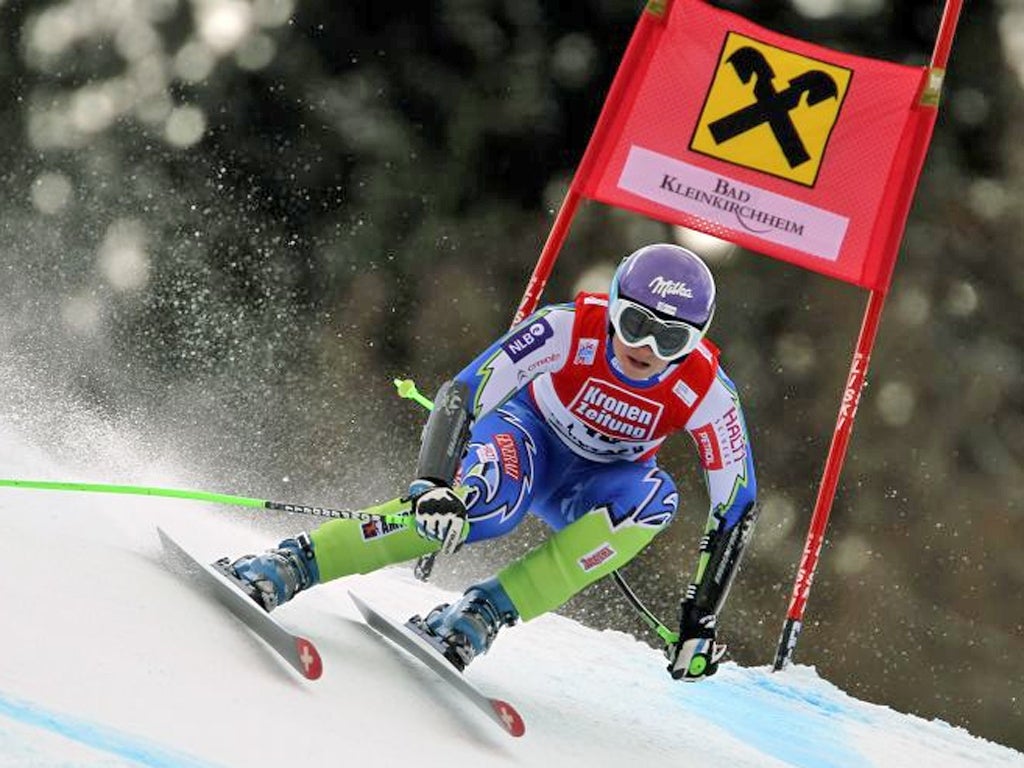Skiing: Downhill hits the skids over plastic underwear row

Your support helps us to tell the story
From reproductive rights to climate change to Big Tech, The Independent is on the ground when the story is developing. Whether it's investigating the financials of Elon Musk's pro-Trump PAC or producing our latest documentary, 'The A Word', which shines a light on the American women fighting for reproductive rights, we know how important it is to parse out the facts from the messaging.
At such a critical moment in US history, we need reporters on the ground. Your donation allows us to keep sending journalists to speak to both sides of the story.
The Independent is trusted by Americans across the entire political spectrum. And unlike many other quality news outlets, we choose not to lock Americans out of our reporting and analysis with paywalls. We believe quality journalism should be available to everyone, paid for by those who can afford it.
Your support makes all the difference.The deeply competitive world of downhill skiing is being rocked by a heated dispute about plastic underwear and whether wearing such garments on the slopes gives racers an unfair aerodynamic advantage over their rivals.
The row erupted last week when the Slovenian skier Tina Maze finished second at a major Austrian event only to be accused afterwards of wearing banned plastic undergarments which might have given her an edge over her competitors. The charges prompted the Swiss Skiing Federation to lodge a complaint with its parent body, the International Skiing Federation (FIS).
Maze tried to make light of the affair – "My underwear is obviously too sexy for the Swiss," she retorted – but her underclothing was subjected to a rigorous examination all the same.
Yet the FIS verdict was by no means conclusive. It ruled that Maze's undersuit met the strict air permeability rules for such garments laid down in the regulations. But FIS added that the garment also contained a membrane which "could be considered a form of plastic", a material banned under the rules.
The body concluded that, although Maze's suit was permissible, "it is recommended that the one-piece undergarment not be used by any athletes in competition." However, it added that the ruling was based on evidence that her garment might be bad for the skin.
The row is the latest dispute to cloud the ultra competitive sport, a discipline in which winning is often a question of a hundredth of a second. Speed suit fabrics and wax types are already constantly modified. Now underwear appears to have become the new battleground for racing regulators.
Beside health concerns, there are suspicions that as some air passes through a skier's outer clothing, underwear that further reduces resistance could deliver an advantage. "The question is: is it the underwear?" Sasha Rearick, the United States men's ski team coach told The New York Times.
Last weekend, Günter Hujara, the men's race director for FIS, chose the Austrian ski resort of Kitzbühel, where a World Cup skiing event will be held shortly, for a meeting with skiing coaches at which he waved a piece of blue plastic skiing underwear around in the air. He is then reported to have said: "If we see something like this, we will not hesitate to disqualify immediately."
It has since emerged that Mr Hujara was brandishing a men's skiing undergarment consisting of a full-bodied plastic neoprene hybrid sheath which can be worn under a standard speed suit.
These kind of undersuits, which are slightly different from Maze's garment, came to the attention of FIS officials at a race in Italy in December when members of the Italian team were seen wearing them. However, the race was cancelled because of bad weather and the Italian coach insisted that his athletes never competed in them.
Competition ski coaches were meeting in Kitzbühel yesterday in an attempt to resolve the dispute and obtain a conclusive ruling from the FIS.
Join our commenting forum
Join thought-provoking conversations, follow other Independent readers and see their replies
Comments